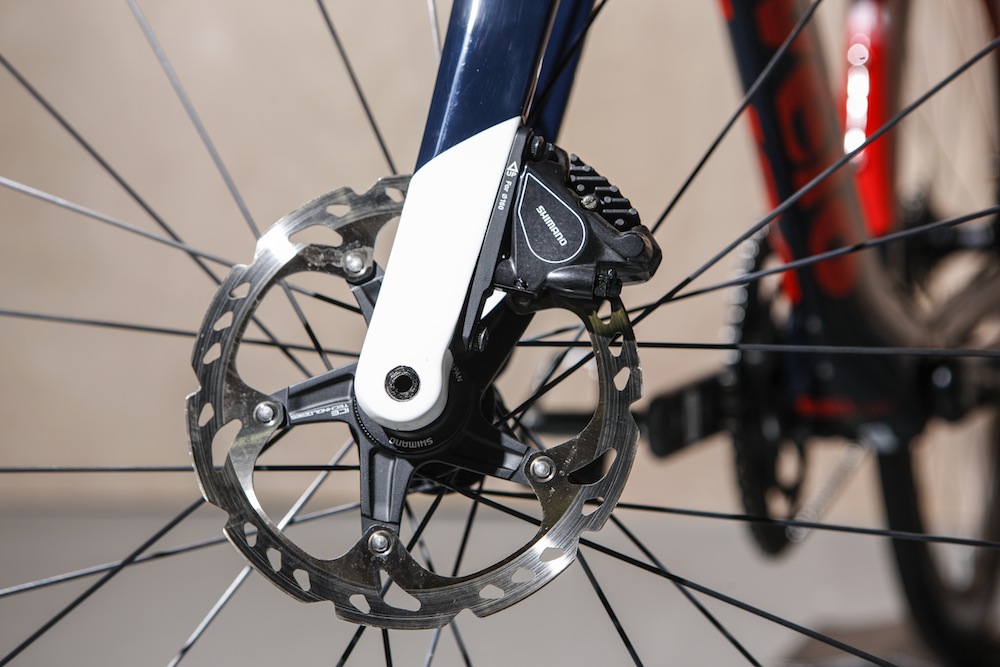Disc brakes to be allowed in all British domestic races from 2018
British Cycling say decision will allow riders to use one bike for all forms of cycling

The latest race content, interviews, features, reviews and expert buying guides, direct to your inbox!
You are now subscribed
Your newsletter sign-up was successful
Riders will be allowed to used disc brakes at all levels of domestic racing in Britain from the start of the 2018 season.
The new ruling from British Cycling will see riders able to use disc brakes in all road races and circuit races from January 1, with the UK following in the footsteps of the USA, Canada, and Australia, where disc brakes are already permitted.
British Cycling director of cycling Jonny Clay said that the decision was in the best interests of riders, and should make it easier for more riders to make the step across to racing from leisure and sportive riding.
>>> Disc brakes: everything you need to know
"The road commission discussed this subject at length resulting in a recommendation for disc brakes to be permitted in all domestic road and circuit races, the Board approved the recommendation at their most recent meeting," Clay said.
"We believe we have made the decision with the best interests of domestic cycle sport in this country at heart.
“We know that buying a bike is a significant financial investment for people to make and with the cycling industry producing more and more bikes with disc brakes we felt it was only right that we amended our regulations to ensure that people can take part in any form of cycling, whether recreational or competitive, with one bike."
The latest race content, interviews, features, reviews and expert buying guides, direct to your inbox!
Watch: Eight things to know about disc brakes
Disc brakes were first allowed in higher level UCI races at the start of the 2016 season, but a trial of the technology was suspended after Movistar rider Fran Ventoso said that he was injured by a disc rotor in a crash at Paris-Roubaix.
However the trial was restarted in 2017, and has seen a steady increase in the number of professional teams and riders adopting the new system, with Tom Boonen becoming the first professional to win a race on disc brakes at the Vuelta a San Juan in January, and Marcel Kittel being the first to win a Tour de France stage on discs.
While UCI races in the UK such as the Tour of Britain, the Women's Tour, and the Rutland Melton Cicle Classic will continue to be subject to UCI regulations on disc brakes, events such as the Tour Series and National Road Series races will be affected by the change.
>>> 'In the future we won't see road bikes without disc brakes - they will all have them'
Reacting to British Cycling's decision, JLT Condor team manager John Herety said that he welcomed the change and hoped it would get more people involved in races.
"The number of people riding disc brake road bikes is increasing all the time," Herety said.
"British Cycling’s decision to allow the use of disc brakes in domestic road and closed circuit races in 2018 will help to remove a barrier that is currently preventing some people from getting into competitive racing and this decision will hopefully have a really positive impact on the future growth and sustainability of the sport."
Henry Robertshaw began his time at Cycling Weekly working with the tech team, writing reviews, buying guides and appearing in videos advising on how to dress for the seasons. He later moved over to the news team, where his work focused on the professional peloton as well as legislation and provision for cycling. He's since moved his career in a new direction, with a role at the Department for Environment, Food and Rural Affairs.